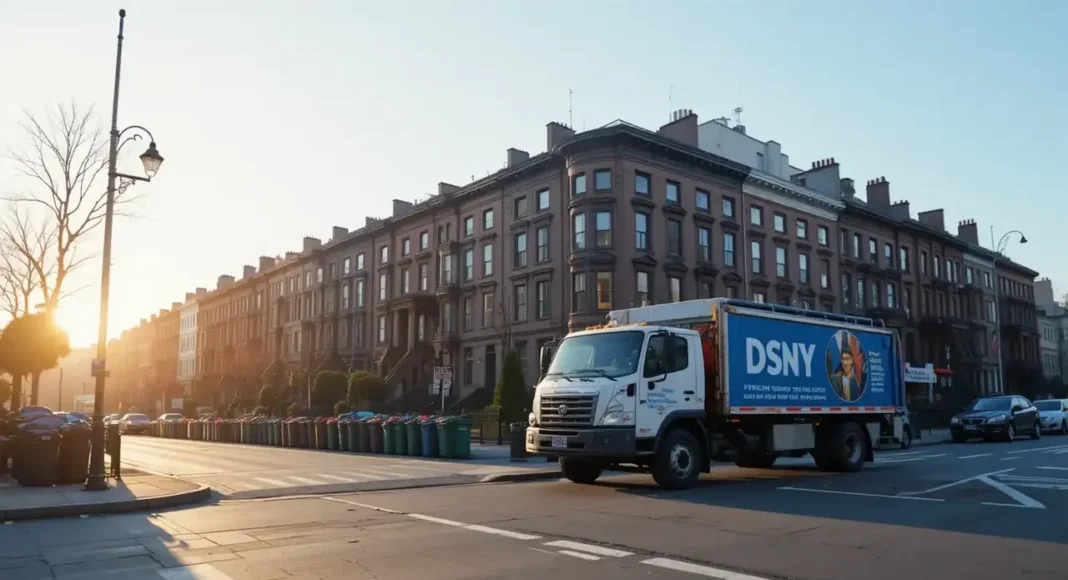New York City, one of the most vibrant metropolises in the world, operates under strict NYC sanitation rules designed to maintain public health, cleanliness, and environmental sustainability.
The NYC Department of Sanitation (DSNY) enforces comprehensive waste management laws that govern everything from trash disposal schedules to recycling, composting, and commercial waste handling.
Understanding these NYC sanitation rules and regulations is crucial for residents, property owners, and businesses who want to stay compliant and contribute to a cleaner, more sustainable city.
Table of Contents
Understanding the NYC Sanitation Rules and Regulations (DSNY)
The Department of Sanitation of New York (DSNY) is the world’s largest sanitation department, serving over 8 million residents.
Its responsibilities include trash collection, street cleaning, snow removal, recycling programs, and zero-waste initiatives.
DSNY’s mission extends beyond waste removal—it aims to build a sustainable future by reducing landfill waste and encouraging recycling and composting citywide.
Residential Trash Collection Rules
1. Collection Schedule
The NYC Department of Sanitation collects residential trash three times a week, depending on your borough and neighborhood.
Use the NYC Department of Sanitation’s collection schedule tool to check your exact pickup days.
Place your trash out the night before collection — after 8:00 PM if you don’t use containers, or after 6:00 PM if your trash is in a secured container.
2. Container Regulations
To follow DSNY rules, store all household waste in leak-proof, rigid containers with tight-fitting lids.
Avoid using plastic bags unless DSNY specifically allows them for certain waste types. Keep containers under 55 gallons and 60 pounds to protect sanitation workers’ safety.
3. Trash Placement
Place trash curbside directly in front of your property without blocking sidewalks or driveways. Early disposal or incorrect placement can lead to fines.
Remove containers from the curb soon after pickup to keep the area clean and compliant.
NYC Recycling Regulations
1. Mandatory Recycling Program
Since 1989, recycling has been mandatory for all NYC residents, institutions, and businesses. Materials are divided into two major categories:
- Metal, Glass, Plastic, and Cartons
- Paper and Cardboard
2. How to Sort Recyclables
Recycling should be sorted and separated clearly:
- Metal, glass, plastic, and cartons go into blue bins.
- Paper, newspapers, magazines, and cardboard go into green bins.
Flatten cardboard boxes to save space and tie them with twine if necessary. Containers should be clean, empty, and free of food residue to prevent contamination.
3. Enforcement and Fines
Failure to comply with recycling rules can lead to civil penalties. DSNY inspectors may issue fines ranging from $25 to $100 for first-time violations and higher for repeated offenses.
Composting and Organic Waste Disposal
1. Curbside Composting Program
The NYC Curbside Composting Program collects food scraps, yard waste, and organic materials citywide. Compostable items include fruit peels, coffee grounds, eggshells, and yard trimmings. Non-compostable items include plastic, glass, and metals.
2. How to Participate
Residents can use brown compost bins provided by DSNY or use certified compostable bags. Collection occurs on designated days alongside recycling or trash pickup, depending on your neighborhood.
3. Benefits of Composting
Composting reduces landfill waste, cuts methane emissions, and turns organic materials into nutrient-rich soil that supports NYC’s parks and green spaces.
By participating, New Yorkers directly contribute to sustainability and environmental preservation.
Bulk Item and Special Waste Disposal
1. Bulk Items
Items such as furniture, mattresses, and appliances are collected separately. These items should be placed curbside on your regular collection day, and no appointment is required for most bulk items.
2. Mattress Disposal Law
Under Local Law 11 of 2011, all mattresses and box springs must be sealed in plastic bags before being placed out for collection. Non-compliance can result in a $100 fine due to potential bedbug contamination risks.
3. Electronic Waste
Electronics like computers, televisions, and printers cannot be disposed of with regular trash under the NYC e-waste ban. Residents can drop them off at designated e-waste recycling centers or participate in building collection programs.
4. Hazardous Waste
Paints, batteries, motor oil, and chemicals are considered household hazardous waste and should be taken to SAFE Disposal Events (Solvents, Automotive, Flammables, Electronics). These city-sponsored events ensure safe and environmentally responsible disposal.
Commercial Waste NYC Sanitation Rules
Businesses in NYC must comply with Local Law 199 of 2019, which regulates commercial waste collection. Key requirements include:
- Hiring licensed private waste haulers.
- Maintaining records of collection and recycling.
- Ensuring proper segregation of recyclables and organics.
Commercial establishments found violating these laws may face hefty fines or license suspensions.
Street Cleaning and Alternate Side Parking Rules
1. Street Cleaning Schedule
Street cleaning keeps NYC roads clean and prevents litter buildup. Alternate Side Parking (ASP) rules require vehicles to move during designated cleaning hours. Signs posted on each street specify the schedule.
2. Fines and Enforcement
Failing to move your car during ASP hours can result in a $65 parking fine. DSNY sweepers clean debris, and enforcement officers monitor compliance.
Residents can check updates on the DSNY or 311 websites, especially during inclement weather suspensions.
Illegal Dumping and Littering Penalties
1. Illegal Dumping
Dumping construction debris, furniture, or trash in unauthorized areas is a serious offense. DSNY imposes fines up to $4,000 and may seize vehicles used in illegal dumping. Surveillance cameras are deployed citywide to catch offenders.
2. Littering Violations
Throwing litter on streets or sidewalks carries fines between $100 and $450. Businesses must also maintain clean sidewalks and 18 inches into the street adjacent to their property to avoid citations.
Snow Removal Regulations
During winter, DSNY is responsible for plowing and salting roads, but property owners must clear snow and ice from sidewalks. The rules are strict:
- Clear within four hours after snowfall stops (if during the day).
- Clear by 11 AM if snow stops overnight.
Failure to comply can result in fines up to $350. Safe passageways must be maintained for pedestrians, especially the elderly and disabled.
Zero Waste by 2030 Initiative
NYC’s Zero Waste by 2030 plan aims to eliminate landfill waste through recycling, composting, and sustainability practices.
The DSNY collaborates with schools, businesses, and residents to promote reuse programs, textile recycling, and e-waste collection. By reducing consumption and improving recycling habits, New Yorkers are shaping a cleaner, greener city.
How to Stay Informed and Compliant
Residents and businesses can stay informed through:
- The DSNY official website for updated rules.
- The 311 app for service requests or reporting violations.
- The Curbside Composting and Recycling guides distributed by the city.
Following these rules not only helps you avoid fines but also ensures NYC remains a model of urban sustainability and civic responsibility.
NYC Sanitation Rules Conclusion
Understanding and adhering to NYC Sanitation Rules and Regulations is vital for maintaining the city’s cleanliness and quality of life.
From proper waste sorting to composting and recycling, every New Yorker plays an essential role in protecting the environment and sustaining urban beauty.


